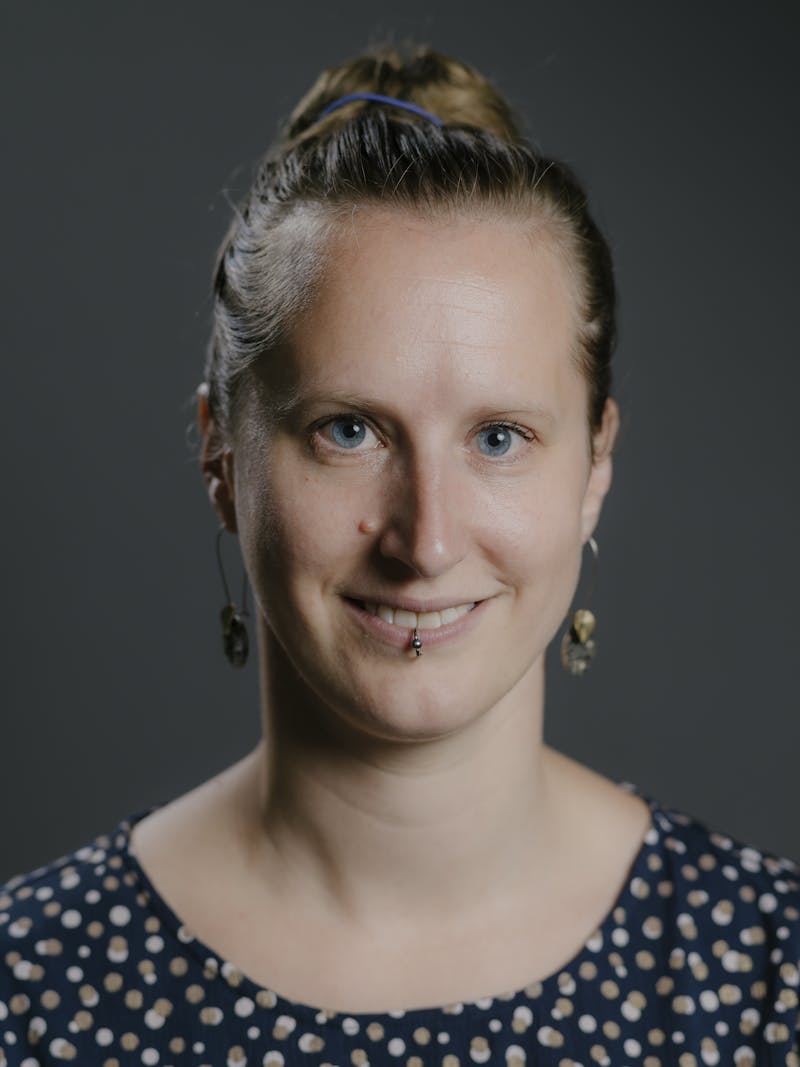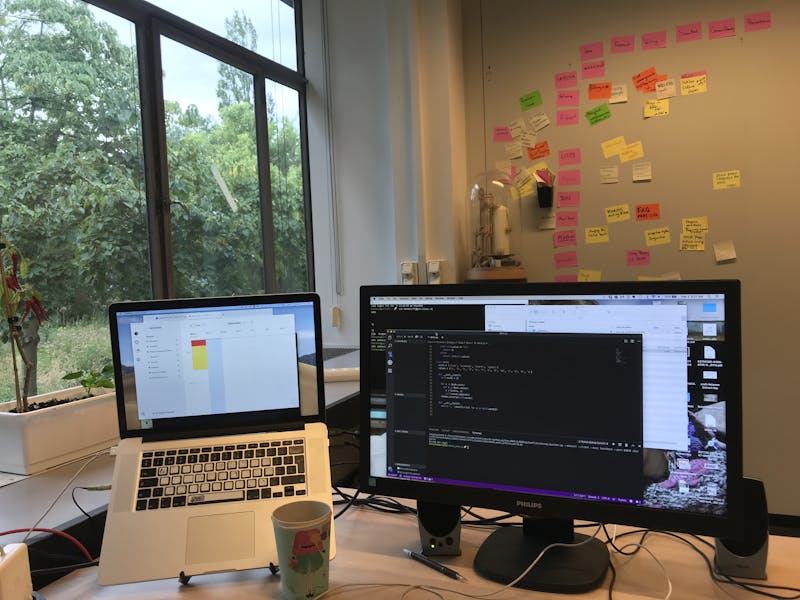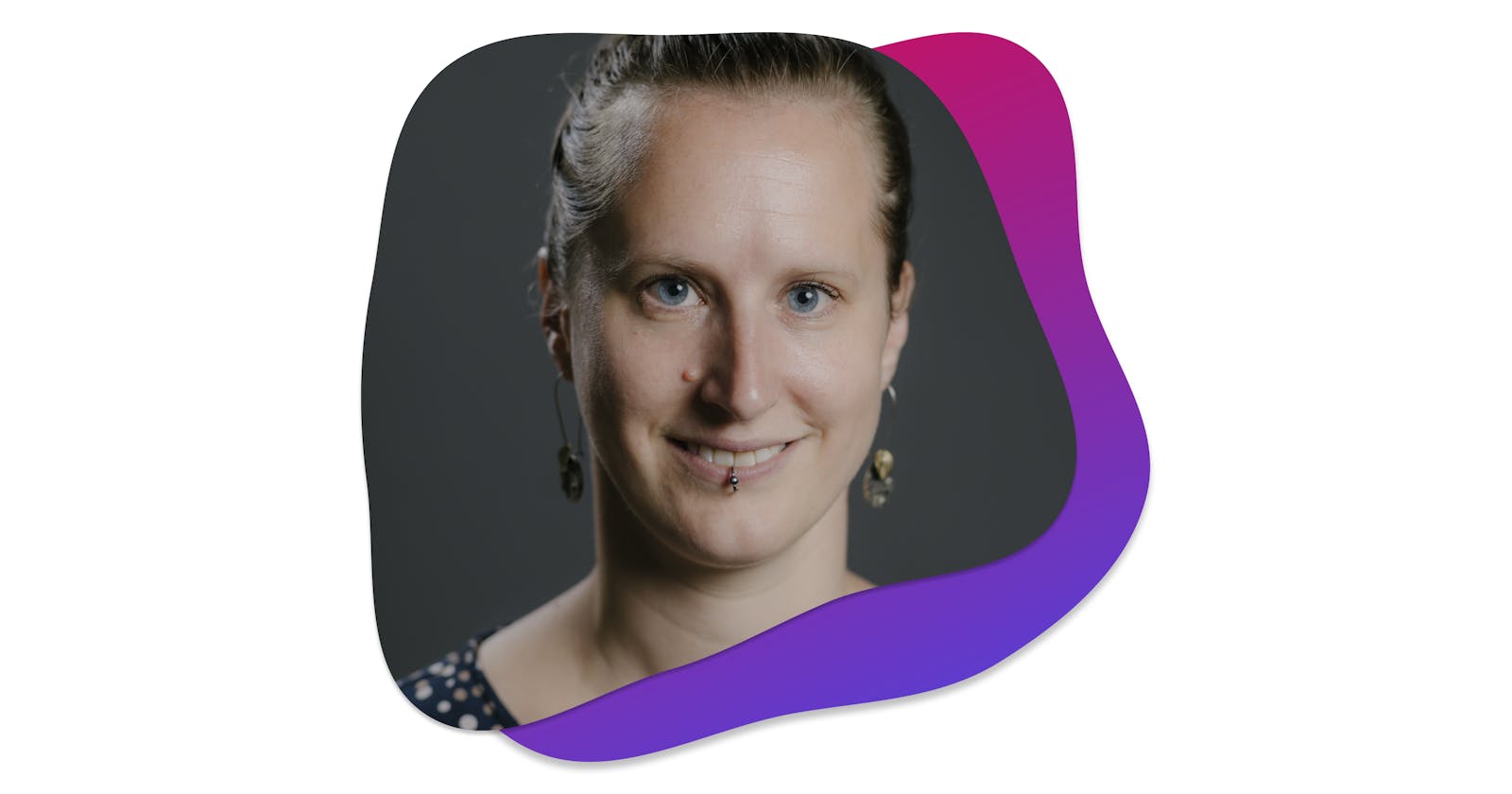Hello, Awesome 👋,
Thanks for taking out time to read this interview. This series is all about talking to the awesome women in tech, understanding the current health of the tech industry and inspiring other women to become better.
If you want to share your story, please reach out to me at bolaji@hashnode.com.
Today, we'll be interviewing Felienne 👩💻 .
Felienne is an Associate professor at the Leiden Institute of Advanced Computer Science at Leiden University. She's fascinated by the question of how we can teach all people to program.
One of Felienne's biggest passions in life is to share her enthusiasm for programming/tech with others, She teach a bunch of kids programming in a local high-school every Saturday.
I interview leading women developer every week and showcase their history, opinions and advice on the tech. In case you missed our previous interviews, check out the " She Inspires " series on Hashnode.
Also, if you find this interview useful, please don't forget to share with your friends and colleagues. 😃
Please tell us a little bit about yourself. How and when did you venture into tech?

Felienne: I had a quite traditional path into programming, I really liked computers when I was a young kid, and together with a bunch of friends I started playing computer games and learning BASIC. In high school, I had an amazing math teacher that really encouraged me to study computer science, which I then did. In my final year, I participated in a programming competition, where I met my future PhD supervisor who invited me to come work with him.
What difficulties have you faced on your way in tech? Have you ever felt like you were not treated as equal?
Felienne: It is not so many concrete difficulties, it is more the small things you keep hearing when you are a woman in tech, the papercuts. I could list so many examples, from a man at a conference who pointed out to me that there were so few women present, and that he thought it was because women's brains aren't made for science to a former classmate who applied for the same faculty position remarking off-hand that of course, I would get the job for being a women (while I was way more qualified). In isolation, these things are small, too small to really say anything about (this is one of the reasons this is so hard to change) but it adds up over the years.
Why do you think there is a bias women face in the 21st century? What are some things people and organizations could do to change this?
Felienne: Science has, for thousands of years, been seen as work for and by men, so it will take a long time, and active effort to change that. Even very recently studies with randomized exams or resumes show that men get a benefit simply from being a man. The first thing organizations can do is to recognize that indeed, it is very likely that people in their organization too suffer from bias and that active policies are needed.
You are an Associate professor at the Leiden Institute of Advanced Computer Science at Leiden University, what has been your experience so far with teaching and research?
Felienne: One of my biggest passions in life has been, for a long time, to share my enthusiasm about programming and technology with others, especially with people that are currently underrepresented like women, people of color and people with disabilities. Many of the things I have done over the years have aligned with this vision, even without me really realizing it. One of the great pieces of advice I once got it that if you do "one off" projects, you will never get anywhere. Everything you do has to connect to one big life story, a common thread. I think there is a lot of truth in that, however, I think in many cases this thread is only visible halfway. It is funny how in academia we do not really get a lot of time to reflect so you need to make your own time for this. One of the things that have helped me make that time, and understand the story of my own life (however weird that might sound!) is to write and talk about it.
In your PhD dissertation, you studied how we can help people working with spreadsheets better, by repurposing methods from software engineering, what inspired this and what was the outcome of this research?
Felienne: I was actually meant to work on creating a DSL (A domain specific language) for finance, to help non-traditional programmers create software in an easier way. But when I started to look at the people that were supposed to use this DSL, they were all already programming.... in Excel! So we then wanted to improve Excel to add IDE-like features like refactoring and testing to it. And that worked really well, we were able to implement this and users liked out features and understood them quite well.
You co-founded Joy of Coding, a one-day single-track conference held in Rotterdam. What inspired this?
Felienne: It seems a lot different now, but when we started in 2012 with organizing Joy of Coding, many conferences were Java, or C# or Python, but there was not a lot of them centred on the fun in programming, without the deep dive, and on integrating communities. That's what we wanted to focus on. Not on tomorrow's next framework, but on what makes programming so interesting.
We see that you speak and teach at software conferences all over the world, how did you get into public speaking and how has it affected your career?
Felienne: Speaking at conferences has impacted my work in so many different ways! Firstly, of course, it has made me travel the world, visit very interesting places and met amazing new people. Secondly, and this might be less expected, speaking has really helped me reflect on my work as an academic. In the normal day to day work, you are often focusing on the next paper you are writing or the next tool you are building. Giving talks (esp. keynotes) is an extremely good way to reflect on the big story of your research, something that is otherwise hard to work on. Finally, but this is hard to prove, I feel it has helped me in my career, to get grants and other opportunities.
What advice would you give to aspiring programmers who look forward to speaking at meetups and/ or conferences?
Felienne: Firstly, I would say:
Yes you do have something to say! Don’t worry that the talk you want to do already exists, your perspective is valuable. A few things that might help:
- Email the organizers When you start to speak, reach out. What is the conference/meetup looking for? Maybe have 2 or 3 ideas ready and brainstorm a bit about what would fit the conference best. Inquire about the level of the audience so you can finetune. As a conference organizer, I have not seen a lot of people do this, but it works really well.
- Have a good online presence preferably a website with a few videos of yourself presenting.
- Practice When preparing, do not focus on slides too much, but focus on the story you are sharing and practice that A LOT. Really I would advise at least 10 times for your first talk, aloud. If you dare, record yourself and watch it.
What advice do you have for college students who are learning how to code or working already?
Felienne: Practice! If you want to get better at programming, practising is key, especially deliberate practice. Coding Katas are great for that, or (and I know this sounds weird in our community) after you have solved a problem, delete your code and do it again. That way you will better remember all the things you have done to solve it and you can reuse these on the next problem.
What do you think needs to be done to encourage beginner developers to learn programming languages and continue learning?
Felienne: This is a tough one, so much to say there!! I think a lot of programming education is focused on the programming language and the tools from the start. This is true both at schools and in code camps, and true in programs aimed at adults and children alike. The underlying assumption is that you already know why you want to learn to code. I think there would be a lot to gain there, for example, using examples and exercises that are more informative to what programming is than printing the first 100 primes. Reading code is very valuable too and if you are in a class with people that know a bit more than you, asking to read their code (with explanation) will help you learn. And of course, I know I sound like a broken record here: practice!
Imposter syndrome is one problem developers face especially newbies, what is your experience with imposter syndrome, how did you manage yours and what advice do you have for anyone facing this currently?
Felienne: Apart from gender I kind of tick all the privilege boxes (middle class, white, able-bodied etc.) so I have mostly felt like I belonged in programming/tech like it was the place for me. When people made me feel otherwise, which of course happened (see the points above on gender) I always thought it was more about them than about me. So I don't really have any tips here but know imposter syndrome is real, and your feelings are valid. Maybe a tip would be to hang out with people that also feel that way. Handing out with more women has made me more comfortable in a male dominated field.
Rejection emails is another thing that motivates imposter syndrome and depression amongst developers especially intermediates. How did you manage this effectively during your "job-hunting" days?
Felienne: I got a lot of rejections from conferences early on, and to be honest, I do not know hold I dealt with that. I just kept trying? I think the trick was I believed my ideas were really valuable, but I do not really remember why
You write and teach a lot Felienne what is your super power and what advice do you have for a newbie who wants to get started with technical writing?
Felienne: Writing is easier than speaking because you don't need anyone's permission to start, you can just start right now! I would give the same advice as with speaking though: Yes you do have something to say! Don't worry the talk you want to do already exists, your perspective is valuable. What has helped me is to try and create a habit, for example, write for 15 minutes every Wednesday. 15 minutes is (almost) always possible, and if you do it regularly, you will write a whole post in a while!
What advice would you give to aspiring graduates who look forward to working in academia?
Felienne: I think the best advice I can give is to try to be around kind people. I have worked in places where people were unkind, or they were nice to me but unkind to others. I love this saying that in science everyone is smart, you have to distinguish yourself by being kind. I believe it! And like it or not, you will turn into the people you work with, especially your academic supervisors. So seek a kind one!
Also, if you are an aspiring academic and have questions: reach out to me please! I am here to help.
What is the best advice someone has given you that has helped you in your career?
Felienne: The best advice I ever got was about supervising people: "remember that your students are not you" Everyone is different and most likely the people you manage are not like you. Try to supervise everyone in a way that fits them, in a way that they need, not like you would like to be supervised. Also, try to prevent to turn into your own supervisor, some things the did might have been for you, so do not apply to all people. This was about supervising but I assume it would work for managing in general.
What are your favorite programming tools?
Felienne:, Of course, I have to start with Excel :) Excel is such a versatile tool, I often use it to quickly analyze data or create charts. In many cases, it is a lot easier than programming in textual programming languages, and I think it has a bad name with a lot of programmers partly because they don't really know the basic capabilities like pivot tables. For larger analyses I also very much like Jupiter Notebooks which are a great combination of code and comments/explanation in a sensible way. I also love SAT solvers, the topic of my MSc thesis and not well-known enough. See this.
What does your development environment look like? Could you please share a photo? :)

Felienne: There is a lot going on in my office as you can see. I grow my own #officepeppers, I collect art and I have a wonderful piece in my office (by the Belgian artist Rob Buelens) that represents collaboration and working as a group. On the wall, you see the scrum-inspired board we use as a research group to keep track of everybody’s progress.
Finally, what would be your message to women trying to get into technology?
Felienne: Reach out to other women as soon as possible. I am not going to lie, there will be people who will make you feel like you do not belong, and it will hurt. The best thing I have found against that (apart of course from trying my hardest to make it better for women who come after me) is hanging out with women who get how hard it can be.
Did you find Felienne's story useful and inspiring?
Write down your thoughts in the comments section below and don't forget to share. You can follow Felienne on Twitter.
See you next time and keep trailblazing 👋.

